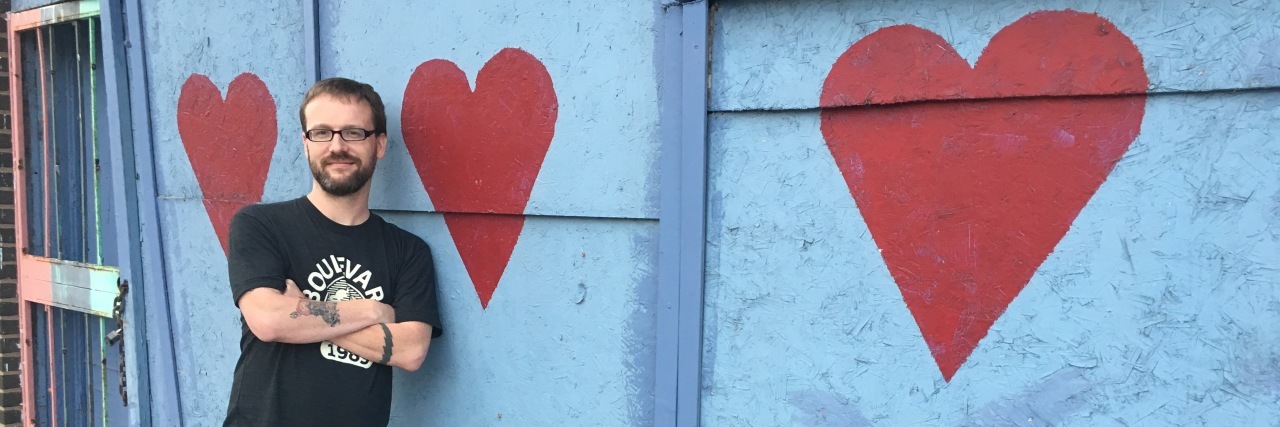One time a Zen teacher said to me that he thought I took to meditation really easily because I had some sort of virtuous past life. I’m one of those Buddhists who doesn’t really believe in past lives… or at least doesn’t think they’re all that important.
But I did take to meditation really well. I fell in love with the practice immediately and it hasn’t escaped my notice that an overwhelming majority of people that I teach or talk to about the practice have a different experience. This is not to say it’s easy for me. It definitely is not. I have the same struggles with getting to the cushion that everyone else has. What I perceive as the difference is that once I started doing it, I knew it was what I needed to do. I knew it was the thing that would help me. I didn’t have the initial struggles a lot of people do of “Why am I doing this?”
I don’t think it’s related to a past life. I think it’s something else.
I like to say, “I’m neurodivergent” because I think it sounds cooler than “I’m on the autism spectrum.” Neurodivergent means having a brain that functions in ways that diverge from the dominant societal standards of normal. Most people don’t even notice, at least I think they don’t. So I could say nothing about it. Since I found out I’ve actually wondered if someone would say, “I don’t believe you.” Or something to that effect. Of course they wouldn’t say that, but they might think it.
If I say nothing about it, there will just be someone once in a while who notices I stare too long, or that I forget obvious things, or that I get lost even going to places I’ve been before, or that I don’t know how to do small talk. I wonder if people sometimes think I’m weird, but also can’t explain why they think feel that way.
It’s not all bad, of course. Sometimes people wonder how I write and read so much. I think autism is the answer, but I’m still wondering about that. I think it’s why I’m drawn to Buddhism and meditation practice. Also… well, my job involves moving numbers around.
Why not share it?
I don’t want to be treated differently. I don’t want people to think they need to show me extra sensitivity. I also wouldn’t want people to avoid me. And it would make me really upset if anyone ever called me “Rain Man,” although I can’t imagine adults behaving that way. But, more than that, I don’t want to be “an autistic writer” or “the autistic Buddhist.” Autism doesn’t define me. It’s one of the things that shape me, but it’s also not everything.
Why share it?
Well, to me being a writer means sharing all sorts of things about myself. That’s a big reason. To me being a writer is about tearing yourself open and bleeding all over the page. But more importantly, I’m not alone. From what I’ve read more than three million people in the United States are autistic. That’s a lot of people and I guess there’s a sense of “me too” about this. I don’t want neurodivergent people to be afraid. So I do want to stand with them and say “you’re not alone.”
I’m on the autism spectrum.
I was in my 30s when I found out and it sure explained a lot of things. It was like a missing piece of information that made everything make sense, like the answer to a complicated riddle. Several people that I’ve known for a long time said, “yeah, that makes sense.”
Is it because of autism that I connect with meditation practice, especially formless practices? Is it because of autism that I can enjoy reading some of the most difficult Buddhist texts that make other people cringe? I don’t know, but these are things I’m exploring.
Buddhist practice influences my understanding of my mind. I’ve learned to notice when I’m paying attention to things other people don’t pay attention to. I’ve learned to notice when my attention is getting lost in different situations.
Some people get the diagnosis and they doubt it at first. That wasn’t my experience. I had already been practicing Buddhism for many years, which led to great introspection. What Buddhism has taught me, more than anything, is to stop holding onto projections.
Also, I do think that autism helps me in sharing the dharma with others. I can approach things from a different perspective. I feel like it’s my responsibility to bring the dharma to meet people where they are, rather than having expectations of them. That might seem like a small difference, but the truth is that newcomers to Buddhism are exposed to a lot all at once most of the time. That can be overwhelming and I certainly don’t want to overwhelm anyone. I know what it means to be overwhelmed.
And because of my perspective, I like to think I can come at some of the teachings from a point of view that maybe isn’t often represented. It helps to hear voices that are different, especially if some people are getting left behind.

